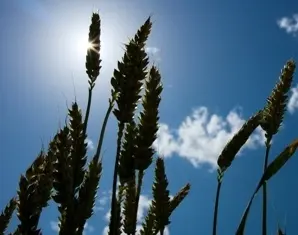A new initiative that will make food more accessible to the poor will strengthen food security across South Africa, the countrys Ministry of Agriculture, Forestries and Fisheries has announced
Farming organisations and companies which specialise in agro-logistics are being called upon to assist in the provision of fresh vegetables and other foodstuffs to low-income households.
A model outlining the roles of different stakeholders including commercial farmers, non-governmental organisations (NGOs) and the government was presented at an event held by Tina Joemat-Pettersson, the South African minister of agriculture, forestries and fisheries, on 10 September 2012.
Joemat-Pettersson invited representatives from Food Bank South Africa and the Transvaal Agricultural Union (TAU) to present strategies on how they can help the poor in urban and rural areas access quality food.
The presentations were based on how different parties can collaborate with the ministry to use their experience, resources and networks in agro-logistics to bring household food security to poor communities across South Africa.
According to Food Bank South Africa, 20 per cent of the country’s households have inadequate or severely inadequate access to food and 2.8mn households, comprising 11mn people, are deemed food insecure. A further 14mn South Africans are vulnerable to food insecurity, it said.
The organisation added that in spite of the commitment shown by the government and corporate and civil society regarding development issues, there are signs of increasing food insecurity in rural and urban areas, owing to a number of issues related to rising unemployment, food price increases, HIV/AIDS, adverse environmental conditions, demise in cultural support, and poverty in general, it claimed.
Joemat-Pettersson said the government is supporting and working closely with Foodbank South Africa to address these issues.
During the meeting, the minister argued that one of the ways in which to assist poor families was to ask farmers to identify produce that would not reach the markets and to ask them to then donate this produce to indigent and poor families for consumption.
“We have to start thinking creatively about how to assist poor, indigent people with fresh food, using the resources that are available to us. I would like to call on our farmers and other stakeholders to donate good food to people to eat instead of destroying it as is common practice in some farms,” she said.
The government reported that South Africa wastes nine million tonnes of food annually, due to inefficient markets and weak distribution mechanisms.
Louis Meintjies, president of the TAU, gave a presentation entitled ‘An agricultural revolution and economic empowerment’. Among the elements of the presentation was a market assessment looking at the basic food market, exports market, government supply and the general local market.
It also looked at job creation and infrastructure for rural agricultural development, focusing particularly on road repairs and maintenance.





